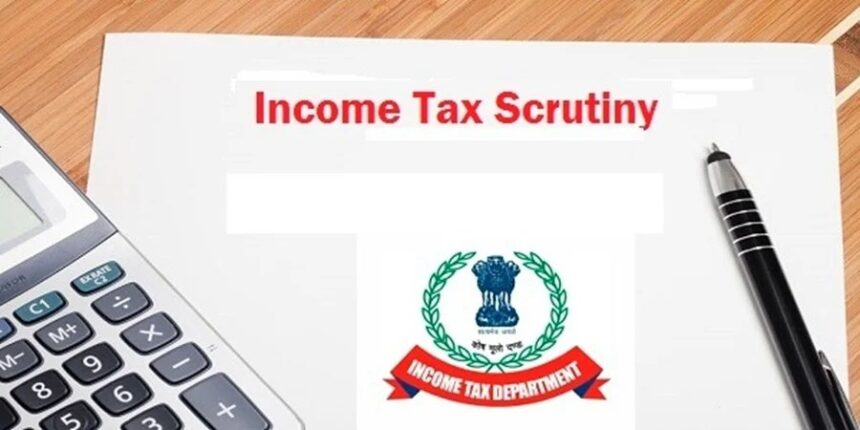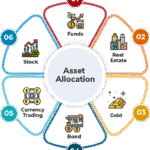When people hear the phrase “income tax scrutiny,” they often feel nervous because it makes them think of long interviews and complicated forms. For manypayers, it’s a notice in their inbox that makes them anxious and takes away their peace of mind. But what if we told you that the first and most important step to making it less mysterious is to understand how it works? Now is the best time to learn because the Central Board of Direct Taxes (CBDT) has released its new rules for the financial year 2025–26.
This complete guide will teach you everything you need to know about the 2025 CBDT rules for checking income tax. We’ll explain the legal jargon in plain English and give you tips on how to avoid it and tell you what to do if you do get that notice. Please feel free to grab a cup of c Please feel free to grab a cup of coffee, and let’s collaboratively explore how income tax scrutiny functions.
income tax scrutiny, and why is it important?
The Income Tax Department looks closely at your Income Tax Return (ITR) as part of an income tax audit. The goal is to ensure your reported income, claimed deductions and exemptions, and paid taxes are all correct. ng the rules set out in the Income Tax Act of 1961.
You could call it a quality check. The tax department checks a few ITRs to make sure the tax system is working properly, just like a manufacturer checks a sample of its products to make sure they meet the required standards. This process prevents tax evasion and ensures equity. y. This process prevents tax evasion and ensures equitable tax payment, thereby contributing to the growth of the country.
homework.
Two Types of Scrutiny: Limited and Full
It’s important to know that not all reviews are the same. There are two main types of income tax checks:
Limited Scrutiny: This type of scrutiny type of scrutiny is a focused look at certain pThis type of scrutiny of your ITR, as the name suggests. For example, the assessing officer (AO) might only want to check a specific deduction you’ve claimed, such as a House Rent Allowance (HRA) or a deduction under Section 80C. The investigation solely focuses on thThe investigation solely focuses on the flagged issue.
look at your whole ITR. The AO will carefully go over all of your financial records, such as bank statements, credit card transactions, and proof of investments, to make sure there are no mistakes.
The new CBDT rules for 2025 primarily focus on selecting cases for full scrutiny.
Understanding the 2025 CBDT Rules for Mandatory Income Tax Scrutiny
The CBDT has set specific rules in its most recent circular for the mandatory selection of ITRs to be fully examined for the financial year 2025-26 (assessment year 2026-27). The goal is to make the selection process more clear and focused on cases that are at high risk. Let’s look at the main groups that will draw the attention of mandatory income tax audits:
- Surveys that are part of cases
Section 133A of the Income Tax Act surveys your business and examines your ITR for that year. The goal is to make sure that any undeclared income or mistakes found during the survey are accurately shown on your tax return. - Cases of search and seizure
This is a very important group. If a search and seizure operation (also called a tax raid) or a requisition under Section 132A has been started against you, your case will automatically be chosen for a more in-depth review. Different time limits set by the rules ensure thorough investigation of all these cases. - Problems with charitable trusts and organizations
The government has been making it harder for charities to abuse tax breaks. The rules for 2025 say that any trust or institution that has had its registration under sections like 12A, 12AB, or 10(23C) canceled or not approved but still claims tax exemptions will have to have their income taxes checked. The goal of this move is to make these kinds of organizations more accountable and open. You can find more information about registering charitable trusts on the official website of the Income Tax Department. - High-Value Additions That Happen Again and Again
When it comes to tax disputes, consistency is essential. Your ITR for this year will be looked at closely if the tax department has added to your income in a previous assessment year because of a recurring issue of law or fact, and this addition has been upheld by appellate authorities. Our goal is to make sure you don’t keep making the same wrong claims. - Detailed Information About Tax Evasion
The Income Tax Department receives numerous valuable tips regarding potential tax evasion from various sources, including other government agencies such as the Enforcement Directorate (ED) and the Central Bureau of Investigation (CBI), as well as from individuals who report misconduct. If there is specific evidence that you are avoiding taxes, be ready for a full income tax audit.
CASS: Computer-Assisted Scrutiny Selection
People often believe that the system manually selects all scrutiny cases. In fact, the Computer-Assisted Scrutiny Selection (CASS) system selects many cases. CASS is a system based on algorithms that uses risk parameters to mark ITRs that are likely to have problems.
The 2025 rules make it clear that cases where a return is filed in response to a notice under Section 142(1) based only on information from the Annual Information Statement (AIS) or Statement of Financial Transactions (SFT) will not be on the list of cases that must be looked at. These will instead go through the CASS for a more focused and limited review if necessary.
The change is a good step because it means that taxpayers who are honest about their transactions and fix any problems that are pointed out in their AIS won’t have to go through a full audit. You can read our in-depth blog post, “Decoding the Annual Information Statement (AIS): Your Financial X-Ray,” to learn more about AIS.
Useful Tips to Lower the Chances of Your Income Tax Being Checked
You can do many things to keep your finances in order and greatly lower your chances of getting that dreaded notice, even if the choice of who to look at is random.
- Reconcile, Reconcile, Reconcile: Before you file your ITR, make sure that the information in your Form 26AS, Annual Information Statement (AIS), and your own financial records all match up perfectly. If the income you report doesn’t match what the tax department has on file, that’s a big red flag.
- Please ensure you include all your sources of income, beyond just your salary. You must report all of your income, including interest from savings accounts and fixed deposits, rental income, capital gains from investments, and any money you make from freelancing or running a business. Even little things are important.
- Be Careful with High-Value Transactions: The tax department pays close attention to transactions with a lot of value. This includes big cash deposits, buying or selling property, making big investments in stocks or mutual funds, and paying off credit cards with a lot of money. Please ensure that these transactions align with the income you have reported.
- Use the Right ITR Form: If you use the wrong ITR form, your return may be marked as “defective,” which could lead to more investigation. Please familiarize yourself with the purpose of each ITR form and select the one that aligns with your sources of income. It’s always a beneficial idea to talk to a tax professional if you’re not sure. Read our guide on how to pick the right ITR form for you.
- Don’t Wait Until the Last Minute: Filing your ITR well before the deadline gives you plenty of time to go over everything and fix any mistakes. Filing quickly makes it more likely that you’ll make mistakes that the taxman will notice.
- Keep very detailed records: This is probably the most important tip. Organize and keep all of your financial papers, like pay stubs, bank statements, rent receipts, proof of investments, and bills for expenses, so that you can easily find them. These papers will be your best defense if you get a scrutiny notice.
- Be Honest About Deductions: Only claim deductions and exemptions that you can prove are real. If you fabricate receipts or make false claims, it can lead to serious consequences, including jail time.
What Should You Do Now That You’ve Gotten an Income Tax Scrutiny Notice?
Receiving a notice for an income tax audit can be frightening, but it’s not a catastrophic event. The most important thing is to stay calm and do things in order. Follow these steps:
Step 1: Don’t freak out and check the notice. The first thing you need to do is stay calm. Read the notice to learn what kind of scrutiny it is (limited or full), what year it applies to, and what information or documents have been requested. Check the notice’s authenticity by looking for a valid Document Identification Number (DIN). The income tax e-filing portal lets you do this.
Step 2: Accept and respond within the time limit. You must reply to the notice within the time limit set. If you don’t, you could get a fine. Most of the time, you file the response online through the e-filing portal.
Step 3: Get all the necessary papers together. This is where your habit of keeping beneficial records will help you. Get together all the papers that the notice asks for. Make sure they are easy to read, clear, and well-organized.
Step 4: Write a clear and short answer. Please provide a comprehensive, point-by-point response to the questions in the notice. Your answer should be based on facts and backed up by documents. Don’t give answers that are unclear or don’t answer the question.
Step 5: Get Professional Help: If the notice is challenging to understand or you don’t know how to respond, it’s best to get help from a qualified chartered accountant or tax consultant. Their knowledge can be very helpful in going through the scrutiny process and getting a good result. You can get professional help from well-known companies like ClearTax or Taxmann.
Step 6: Work with the Assessing Officer: If the AO sets up a hearing (which is usually virtual under the faceless assessment regime), go to it and bring any extra papers or information that may be needed. A friendly and open approach can help the situation get better quickly.
The Faceless Assessment Regime: A Big Change
The Indian government has started the Faceless Assessment Scheme in the last few years to make the process of checking income tax more open, effective, and fair. There is no direct contact between the taxpayer and the assessing officer under this plan. The assessment unit randomly assigns the case, regardless of its location, through email. This approach approach has made it much harder for people to harass and bribe others.
In conclusion, knowledge is your best defense.
The rules about income tax are always changing, so the best way to protect yourself is to stay up to date. The CBDT guidelines for 2025 are a step toward a tax system that is more focused and open. If you know what to look for and develop positive financial habits, you can not only lower your chances of being chosen, but you can also feel confident about going through the process if you need to.
Don’t be afraid of an income tax audit; just be ready for it. Keep good records, file your taxes on time and honestly, and don’t be afraid to ask for professional help when you need it. Being proactive and well-informed will help you keep your financial journey smooth and stress-free.




